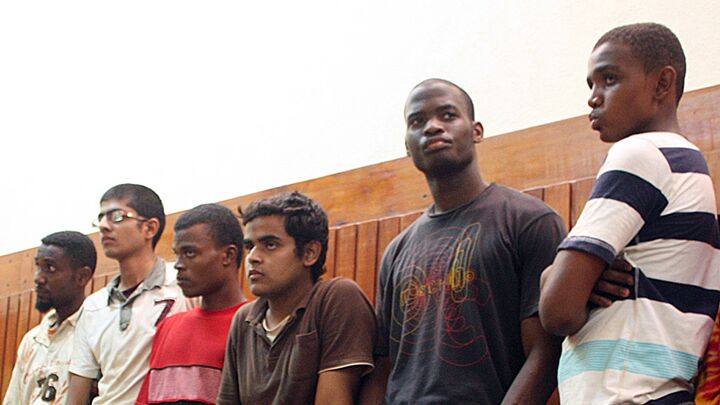
Michael Adebolajo’s Brother Condones Beheading of British Soldier
On December 19, the Guardian interviewed the younger brother of the Muslim who hacked a British soldier to death in May. Like his now-convicted brother Michael Adebolajo, Jeremiah Adebolajo justifies the savage murder of Lee Rigby as a Muslim act of faith.
According to British authorities, these British-born brothers, who profess to be devout Muslims, are wrong in their assertions of their Muslim obligations. “There is nothing in Islam that justifies this truly dreadful act,” assured Prime Minister David Cameron. Moderate Muslims have also condemned such actions as contrary to the teachings of the Koran. “As Muslims,” declared Shakeel Begg, a senior imam at the mosque that Michael Adebolajo attended, “we find this act to be something totally abhorrent and unacceptable.”
Each time Muslims commit violent crimes and then chant “Allahu Akbar,” Muslims and non-Muslims alike condemn those acts as violations of the Koran.
But from a security point of view, defending the true teachings of Islam, whatever they may be, is a little irrelevant. The fact of the matter is that Michael Adebolajo believed in killing in the name of Allah. His brother Jeremiah condones such actions. And so do many other Muslims.
In the aforementioned interview, the younger Adebolajo said that his love for his brother has grown since the attack. Jeremiah said he was proud of his brother “in that he is a Muslim and that he sought to please Allah by fighting in his cause and dying in his cause.”
Jeremiah argued that his brother Michael was just a soldier in the same way Private Rigby was a soldier. “Lee Rigby is a man who decided to join the armed forces of Britain to protect what he holds dear,” he said. “And my brother was a man who decided to also join military resistance in what he holds dear. We may call them different things, one might be called the armed forces whilst another might be called the mujahidin. I would suggest that from that purely secular point of view my brother and Lee Rigby are exactly the same. From a religious point of view I consider my brother to be better because he is a Muslim and because he is fighting in the cause of a war.”
In a different interview, Jeremiah actually predicted other Muslims would commit similar atrocities in Britain. He said candidly, “I suggest that it won’t be the last, simply because of the tactics of the British secret service and foreign policy.”
The Adebolajo brothers are just two of thousands of British-born, British-educated radical Islamists. These radicals can freely and easily air their ideology as they exercise their freedom of speech. Should they ever decide to attack the British society they belong to, they will probably be marginalized as a fringe group of unfaithful Muslims. But what they are portrayed as is not nearly as important as what the radical Islamic community perceives themselves to be—devout Muslims putting the Koran into practice.
In a commentary titled “Britain’s ‘Utopium,’” Trumpet columnist Robert Morley likened Britain’s feel-good political correctness to being intoxicated with a hallucinogen that wishes away Islamist terrorism by simply ignoring its real cause. “Britain refuses to confront Islam outright,” he warned. “Instead, it turns back to the drug of politically correct multiculturalism. It’s a dangerous opiate to be on. It can kill you.” That is the reality that even Jeremiah Adebolajo warned of.
Read Mr. Morley’s article and Trumpet editor in chief Gerald Flurry’s article, “Why We Cannot Win the War Against Terrorism,” to understand how we can win the war on terrorism and how God will soon intervene to end terrorism forever.
